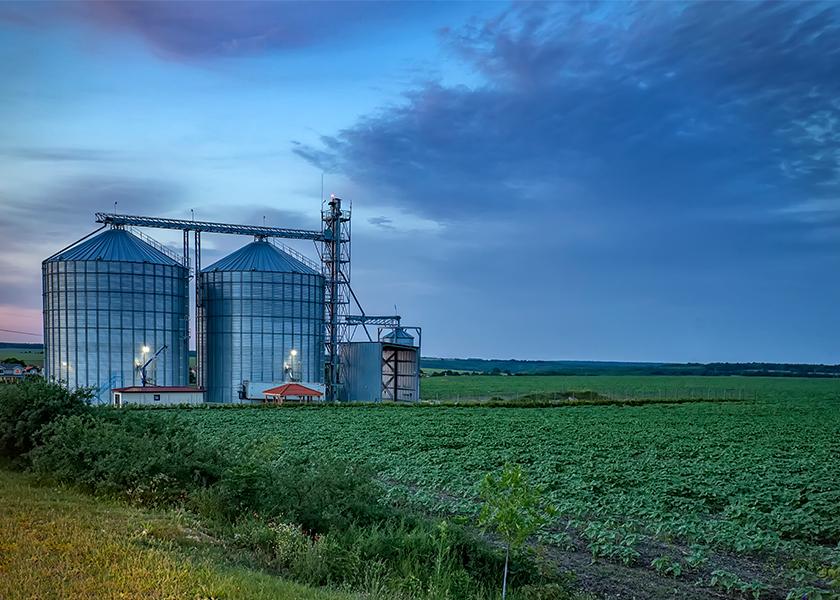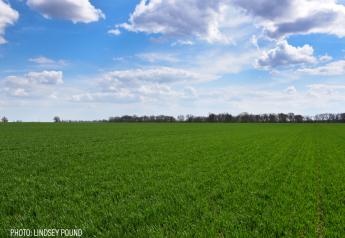Evening Report | September 30, 2022

Check our advice monitor on ProFarmer.com for updates to our marketing plan.
Your Pro Farmer newsletter is now available... Central banks around the world are scrambling to rein in runaway inflation by aggressively raising interest rates. That’s slowing economic activity. Rising interest rates and slowing economic growth are in turn causing major fluctuations in foreign exchange rates, which will impact global trade balances. The global economic and monetary engine is out of balance, causing severe vibrations into 2023... and potentially beyond. Meanwhile, geopolitical tensions have increased as Russia moved closer to annexing four regions of Ukraine, which the West and Ukraine say violates international sovereignty laws, and there was suspected sabotage of the Nord Stream gas pipeline that runs from Russia to Europe. The geopolitical upheaval has heightened global grain supply concerns, as Ukraine and Russia are major exporters of wheat, corn and sunseeds. On Friday, USDA issued Sept. 1 stocks, which set final 2021-22 carryover for corn and soybeans and released its final estimates for the 2022 U.S. wheat crop. We cover all of these items and much more in this week’s newsletter, which you can access here.
Another Sept. 1 stocks shocker... USDA’s Sept. 1 corn stocks estimate of 1.377 billion bu. was 135 million bu. below the average pre-report trade estimate, which triggered a bullish response in corn futures to close out the week. Sept. 1 soybean stocks were 32 million bu. higher than anticipated, which sparked selling in soybeans today. The surprise for wheat came from the final 2022-crop production estimate, which came in 128 million bu. lower than expected, though Sept. 1 stocks were right in line with expectations. That implies first quarter 2022-23 wheat use was even worse than anticipated. Click here for more details.
Putin announces Russia’s annexation of Ukraine territories... President Vladimir Putin proclaimed Russia’s annexation of four regions of Ukraine – about 15% of the country, which is the biggest annexation in Europe since World War II. Putin signaled he was ready to continue what he called a battle for a “greater historical Russia,” escalating tensions with the U.S. and its Western allies. “People living in Luhansk, Donetsk, Kherson region and Zaporizhzhia region are becoming our compatriots forever,” said Putin, referring to the regions that he said Russia was annexing. “We will defend our land with all our strength and all our means,” he said, calling on “the Kyiv regime to immediately cease hostilities and return to the negotiation table.”
President Joe Biden condemned what he called Russia’s “fraudulent attempt” to annex sovereign Ukrainian territory and said new U.S. sanctions would hurt those who provided political or economic support to the annexation drive. NATO chief Jens Stoltenberg called on Putin to end the war he had started.
Ukrainian President Volodymr Zelenskyy said he was only ready for peace talks if and when Russia got a new president. He also announced Ukraine was formally applying for fast-track membership of the NATO military alliance, something Moscow fiercely opposes, and accused Russia of redrawing borders “using murder, blackmail, mistreatment and lies.” He said however that Kyiv remained committed to the idea of co-existence with Russia “on equal, honest, dignified and fair conditions.”
U.S. issues new sanctions against Russia... The U.S. on Friday imposed a new round of wide-ranging sanctions on Russia over its declared annexation of parts of Ukraine, targeting hundreds of people and companies, including those in Russia's military-industrial complex and lawmakers. The latest sanctions come on top of sweeping measures already imposed by the U.S. and allies this year that have crippled Russia’s international trading and local economy. But they stop short of Russia’s energy industry, the country’s largest source of hard currency.
Guidance from the U.S. Treasury and Commerce departments warned that anyone outside Russia, including companies, that provide political, economic or material support to Moscow faced a heightened risk of sanctions.
Treasury said it imposed sanctions on 14 people in Russia’s military-industrial complex, two leaders of the central bank, family members of top officials and 278 members of the legislature “for enabling Russia’s sham referenda and attempt to annex sovereign Ukrainian territory.”
Among those designated for U.S. sanctions were Deputy Prime Minister Alexander Novak; 109 State Duma members; the Federation Council of the Federal Assembly of Russia and 169 of its members; and the governor of the Central Bank of Russia, Elvira Nabiullina.
Argentine FX boost triggered strong soybean sales... Argentine farmers sold 13.9 MMT of soybeans since the launch of a preferential “soy dollar” exchange rate at the start of September, a measure which expires today, the Rosario Grains Exchange said. The so-called 'soy dollar' helped spur sales and Argentina's central bank accumulate some $5 billion in reserves during September, key to refill depleted state coffers and help the country meet targets with the International Monetary Fund.
IMF: War prompts worst global food crisis since 2008... The war in Ukraine that disrupted global grain and fertilizer flows created the worst food security crisis since at least the one following the 2008 global financial meltdown, with some 345 million people now facing life-threatening shortages, the International Monetary Fund (IMF) said. A new IMF research paper estimates that the 48 countries most exposed to food shortages face a combined increase in their import bills of $9 billion in 2022 and 2023 due to the sudden jump in food and fertilizer prices caused by Russia's invasion. This will erode reserves for many fragile and conflict-affected states that already face balance-of-payments problems after a grinding pandemic and rising energy costs, IMF said.
IMF called for a rapid increase in humanitarian assistance through the World Food Program and other organizations as well as targeted fiscal measures in affected countries to aid the poor. But it said governments needed to prioritize fighting inflation. It called for eliminating food export bans and other protectionist measures, citing World Bank research that these account for as much as 9% of the world wheat price increase.
Core personal spending rises in August... The U.S. personal consumption expenditures (PCE) price index rose 6.2% annually in August, down from 6.4% the previous month. But core PCE prices excluding food and energy prices jumped 4.9%, up from an upwardly revised 4.7% in July.
Consumer sentiment rises in September... The University of Michigan’s Consumer Sentiment Index rose to 58.6 in September, up from a reading of 58.2 the previous month. The index of current economic conditions rose 1.1 points to 59.7, while the index of consumer expectations held at 58.0.
The median expected year-ahead inflation rate declined to 4.7%, the lowest reading since September 2021. At 2.7%, median long-run inflation expectations fell below the 2.9% to 3.1% range for the first time since July 2021.
FTC sues pesticide makers, alleging price scheme... The U.S. Federal Trade Commission (FTC) on Thursday sued two top pesticide manufacturers for allegedly entering into exclusive contracts with distributors that kept prices paid by farmers artificially high. The attorneys general of 10 states joined in the suit.
The lawsuit alleges Syngenta and Corteva Inc. paid distributors not to offer farmers generic pesticides, herbicides and fungicides after the companies’ patents on six chemical ingredients expired. As a result, farmers have paid around 20% more, amounting to hundreds of millions of dollars a year, for the companies’ products, an FTC official said.
Syngenta spokesman Saswato Das said the arrangements were customer discounts that were “part of a voluntary and industry-standard program that has been in place for decades” in the industry. “Syngenta strongly disagrees with the FTC’s complaint, which it believes is contrary to the facts and the law and is without merit,” Das said. “We are disappointed that the FTC has failed to appreciate the beneficial effects that these rebate programs provide to our channel partners and to growers.”
Corteva spokesperson Kris Allen said the company believes the complaint has no basis. “We will vigorously defend our position that Corteva’s customer marketing programs are fully compliant with the antitrust laws,” Allen said.
The lawsuit asks the court to end the loyalty programs and grant restitution to farmers.
USDA confirms more HPAI in commercial operations... USDA’s Animal and Plant Health Inspection Service (APHIS) confirmed highly pathogenic avian influenza (HPAI) in three additional commercial poultry operations, with two locations in Sanpete County, Utah, with a total of 163,900 turkey meat birds, and one in Ransom County, North Dakota with 69,100 turkey meat birds. Since Aug. 22, the head count is 5.7 million across 35 complexes, five of which have now been released. So far, 27 of the infected flocks have been turkey meat or turkey breeder operations. The two egg mega flocks account for 4.2 million of the depopulated birds.






